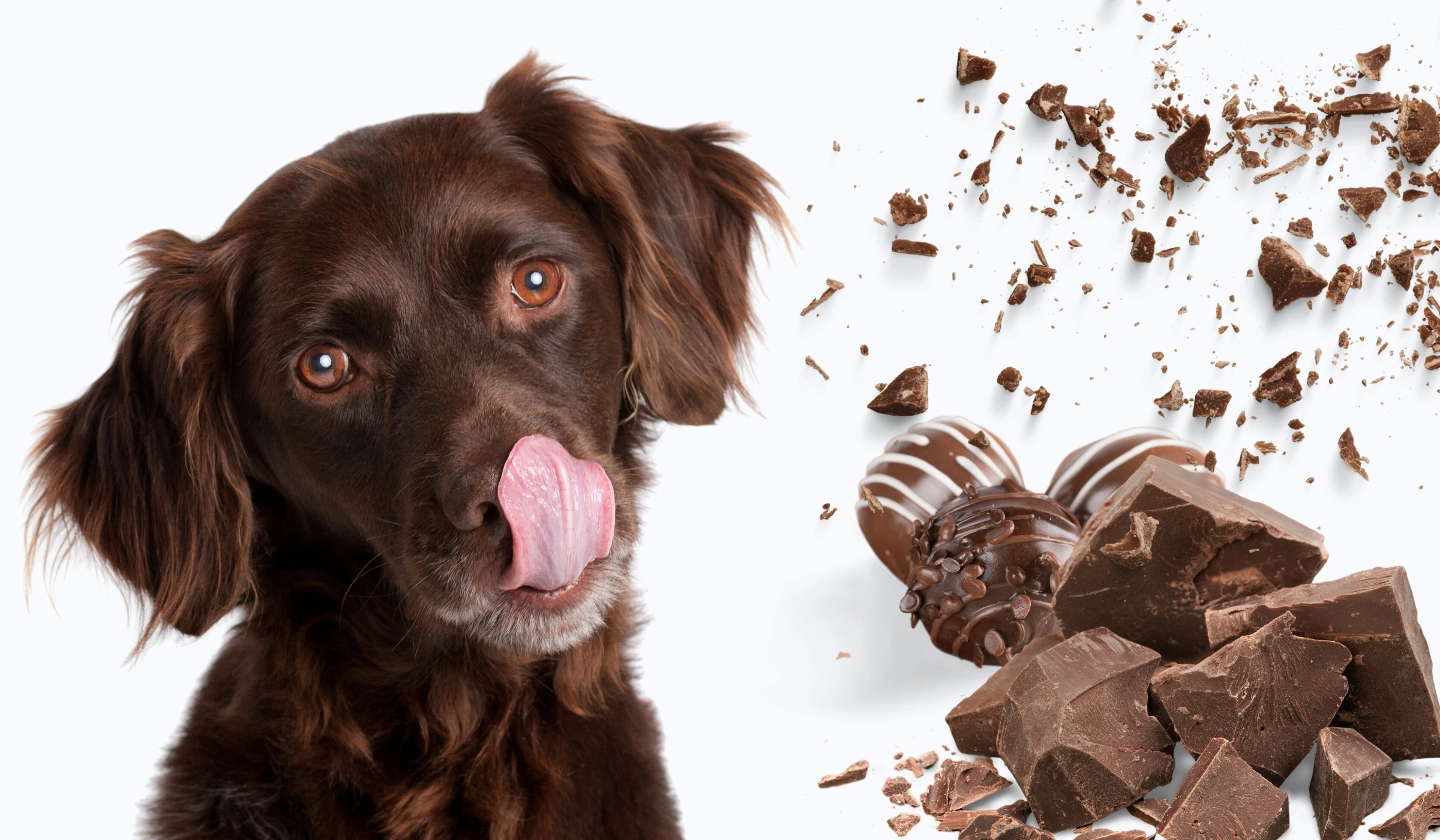As dog owners, we often find ourselves wanting to share our food with our furry companions. One of the most common human treats that many pet owners wonder about is chocolate. Its rich, sweet flavor makes it a favorite snack for us, but it can be deadly for dogs. In this comprehensive guide, we will discuss whether chocolate is safe for dogs, the risks involved, and what you should do if your dog eats chocolate.
Understanding Chocolate and Its Toxicity to Dogs
Chocolate is made from cocoa beans, which contain two compounds that are toxic to dogs: theobromine and caffeine. While humans can safely metabolize these substances, dogs process them much more slowly, making them susceptible to poisoning. The severity of the reaction depends on several factors, including the type of chocolate, the amount ingested, and the size of your dog.
Nutritional Content of Chocolate
Before diving into the safety of chocolate for dogs, let’s take a closer look at the nutritional content of chocolate. Different types of chocolate contain varying amounts of theobromine and caffeine, which can impact how toxic they are to dogs:
- Dark Chocolate: Contains the highest levels of theobromine and caffeine, making it the most dangerous type for dogs.
- Milk Chocolate: While less toxic than dark chocolate, it still poses a risk if consumed in large quantities.
- White Chocolate: Contains negligible amounts of theobromine, but should still be avoided due to its high fat and sugar content.
Are Dogs Safe to Eat Chocolate?
While dogs can technically consume chocolate, it is not safe for them. Here’s why chocolate is dangerous for dogs:
-
High Theobromine and Caffeine Levels Chocolate contains both theobromine and caffeine, stimulants that can cause a variety of symptoms in dogs, such as increased heart rate, restlessness, vomiting, and diarrhea. In severe cases, chocolate toxicity can lead to seizures, muscle tremors, and even death.
-
Size of Your Dog Matters Larger dogs may tolerate small amounts of chocolate better than smaller dogs, but that doesn’t mean it’s safe. Chocolate can still be harmful to any dog, regardless of size, so it's always best to err on the side of caution.
-
Different Types of Chocolate Have Varying Levels of Toxicity Dark and baking chocolates are much more dangerous than milk chocolate or white chocolate due to the higher concentration of theobromine. Even small amounts of dark chocolate can cause significant toxicity in dogs.
Symptoms of Chocolate Poisoning in Dogs
If your dog eats chocolate, it’s crucial to be aware of the potential symptoms of chocolate poisoning, which can vary based on the type of chocolate and the amount ingested. Common signs include:
- Vomiting
- Diarrhea
- Increased heart rate and restlessness
- Tremors or seizures
- Excessive thirst or urination
- Rapid breathing
- Muscle rigidity
If your dog exhibits any of these symptoms, contact your veterinarian immediately.
What to Do if Your Dog Eats Chocolate
If you suspect that your dog has eaten chocolate, follow these steps immediately:
1. Determine the Type and Amount of Chocolate
Try to figure out how much chocolate your dog has consumed and what type it was. Dark chocolate and cocoa powder are much more toxic than milk chocolate, so knowing this will help your vet determine the level of risk.
2. Call Your Veterinarian
Contact your veterinarian immediately. They will need to know the type of chocolate, the amount consumed, and your dog’s size in order to assess the situation. If you’re unable to reach your vet, consider calling an emergency veterinary clinic or the Pet Poison Helpline.
3. Induce Vomiting (Only Under Professional Guidance)
If the chocolate was ingested recently, your vet may recommend inducing vomiting. This should only be done under professional guidance to avoid causing further harm.
4. Monitor Your Dog
If your vet advises that you wait at home, monitor your dog closely for symptoms of chocolate poisoning. Keep your dog calm and provide them with fresh water.
5. Activated Charcoal (Under Professional Supervision)
Your vet may administer activated charcoal to help absorb the toxins in your dog’s stomach. However, this should only be done by a professional.
When to Seek Emergency Care
If your dog has consumed a large quantity of chocolate, or if they show severe symptoms such as seizures or unconsciousness, take them to an emergency vet immediately. Time is critical when dealing with chocolate poisoning.
Preventing Chocolate Poisoning in the Future
While accidents can happen, it’s always best to be proactive to prevent chocolate from becoming a problem. Here are a few tips to keep chocolate away from your dog:
- Store chocolate out of reach: Always keep chocolate and any food containing chocolate in secure places, away from your dog.
- Be cautious during holidays: Holidays like Halloween, Easter, and Christmas often involve chocolate treats that may be left lying around. Make sure your dog can’t access these foods.
- Educate family and friends: Ensure that everyone in your household is aware of the dangers of chocolate and the potential risks to your dog.
Conclusion: Can Dogs Have Chocolate?
In summary, dogs should never eat chocolate. It is toxic to them and can lead to serious health issues, from gastrointestinal upset to seizures and even death. If your dog consumes chocolate, it's important to act quickly and contact your veterinarian for advice.
Chocolate may be a delightful treat for humans, but it's not worth the risk for your dog. By staying vigilant and preventing chocolate access, you can keep your furry friend safe and healthy.
Final Thoughts
Ultimately, when it comes to your dog’s diet, always prioritize their health and safety. While chocolate is a common and tempting treat for us, there are plenty of other dog-safe treats available that will keep your dog happy and healthy without the risk. Keep chocolate out of your dog's reach, and remember, when in doubt, consult your veterinarian.


